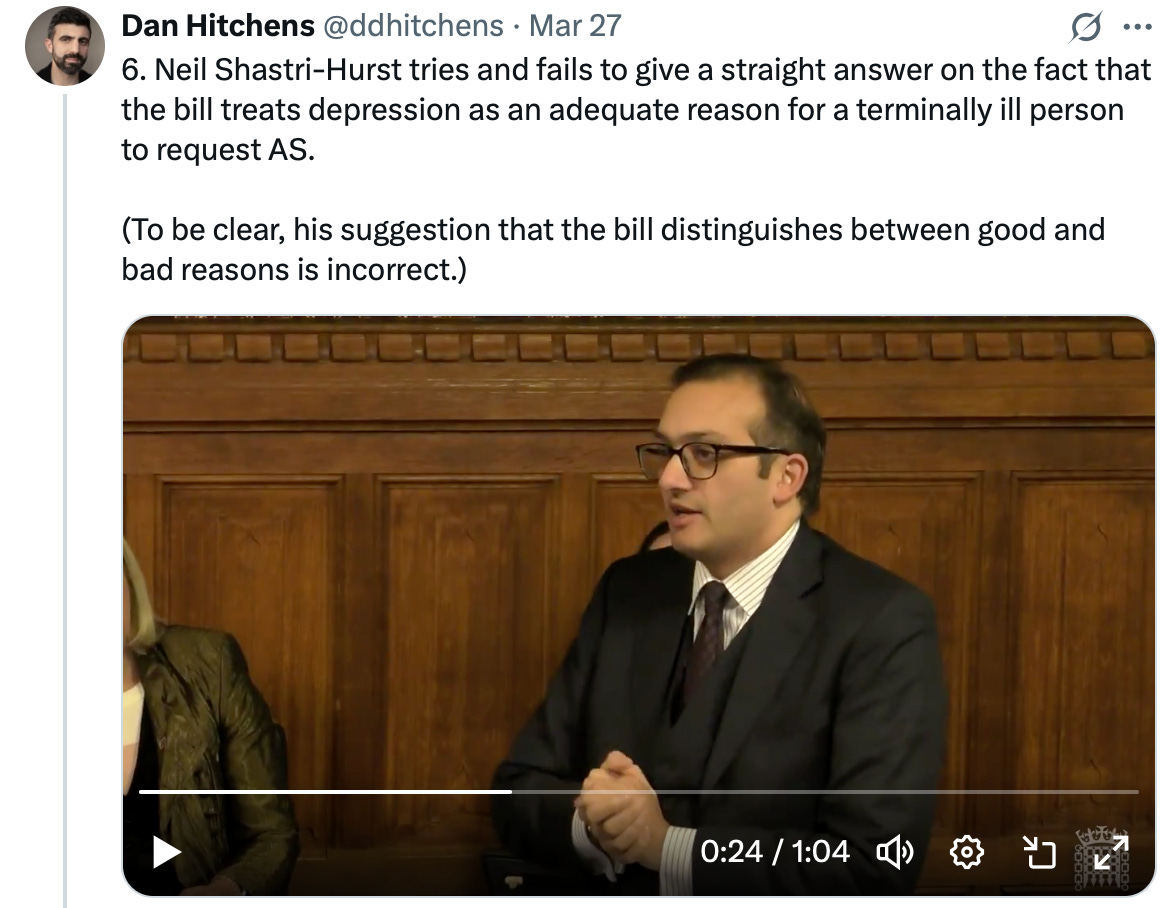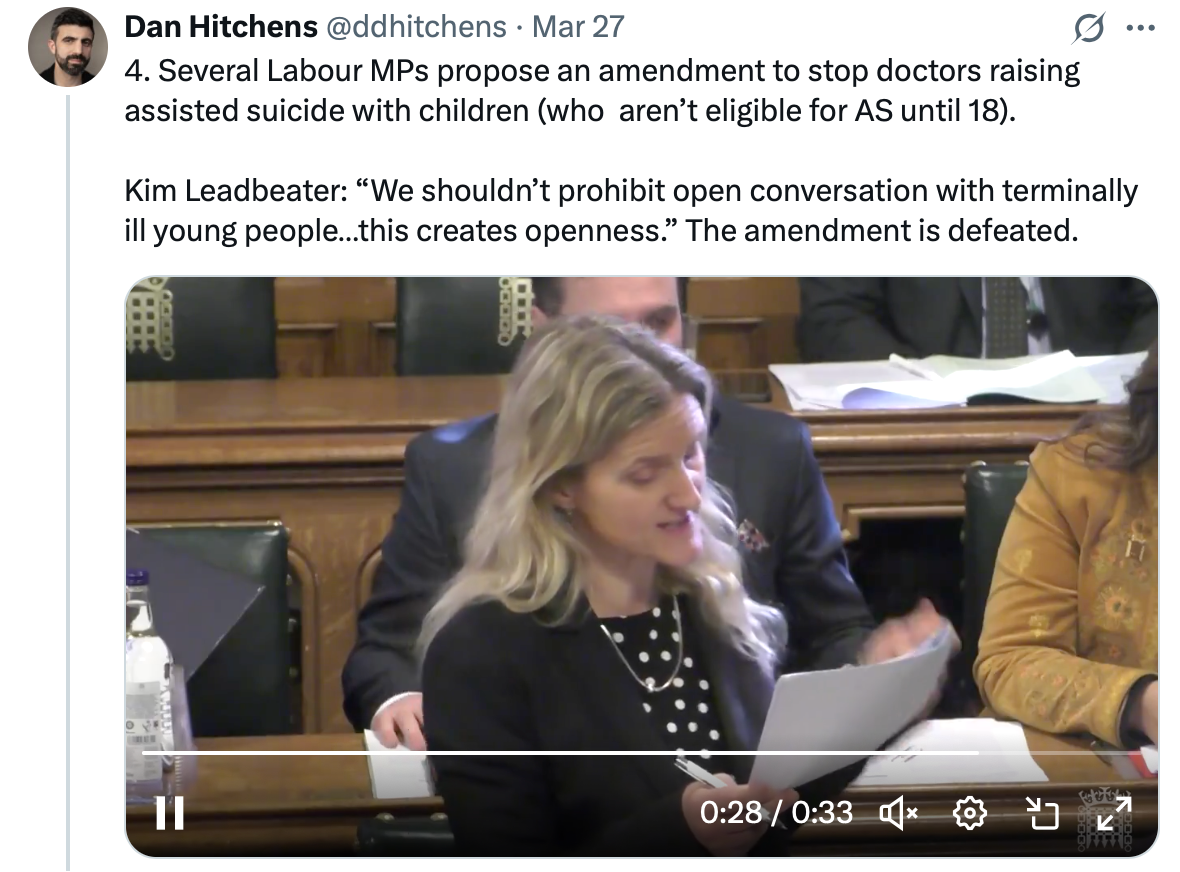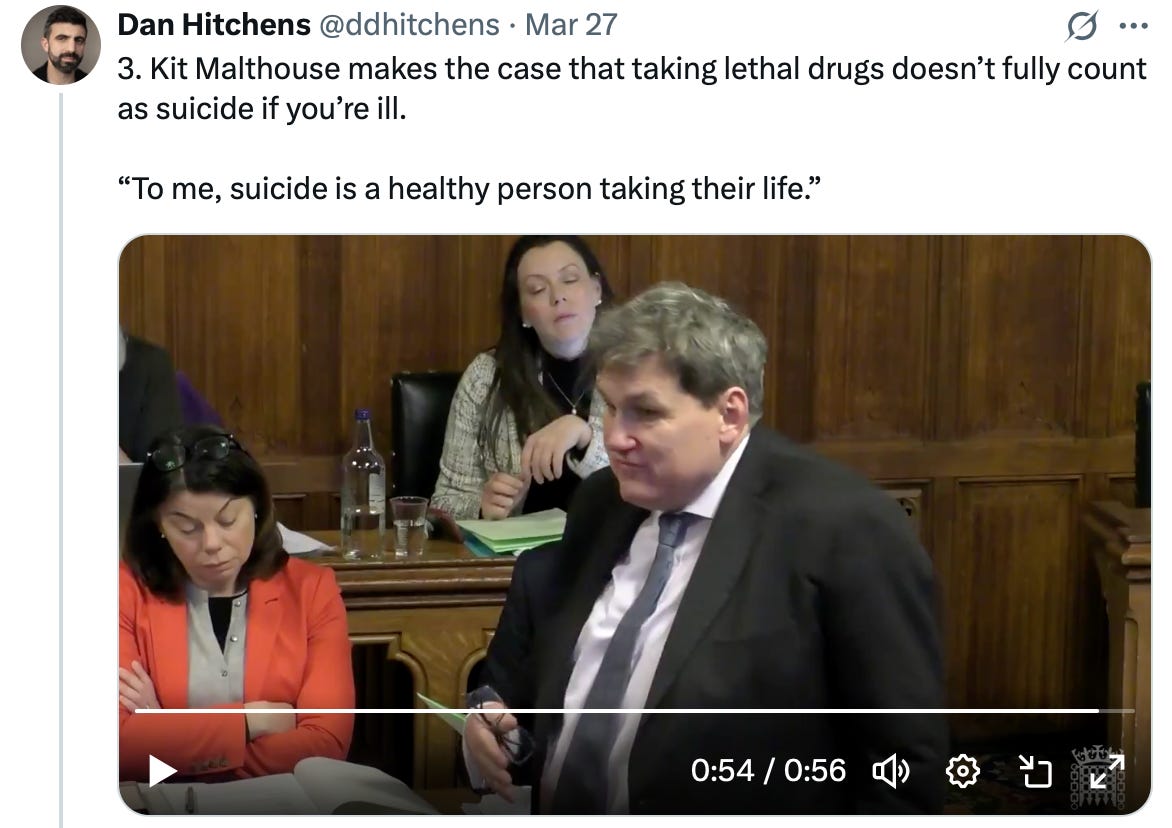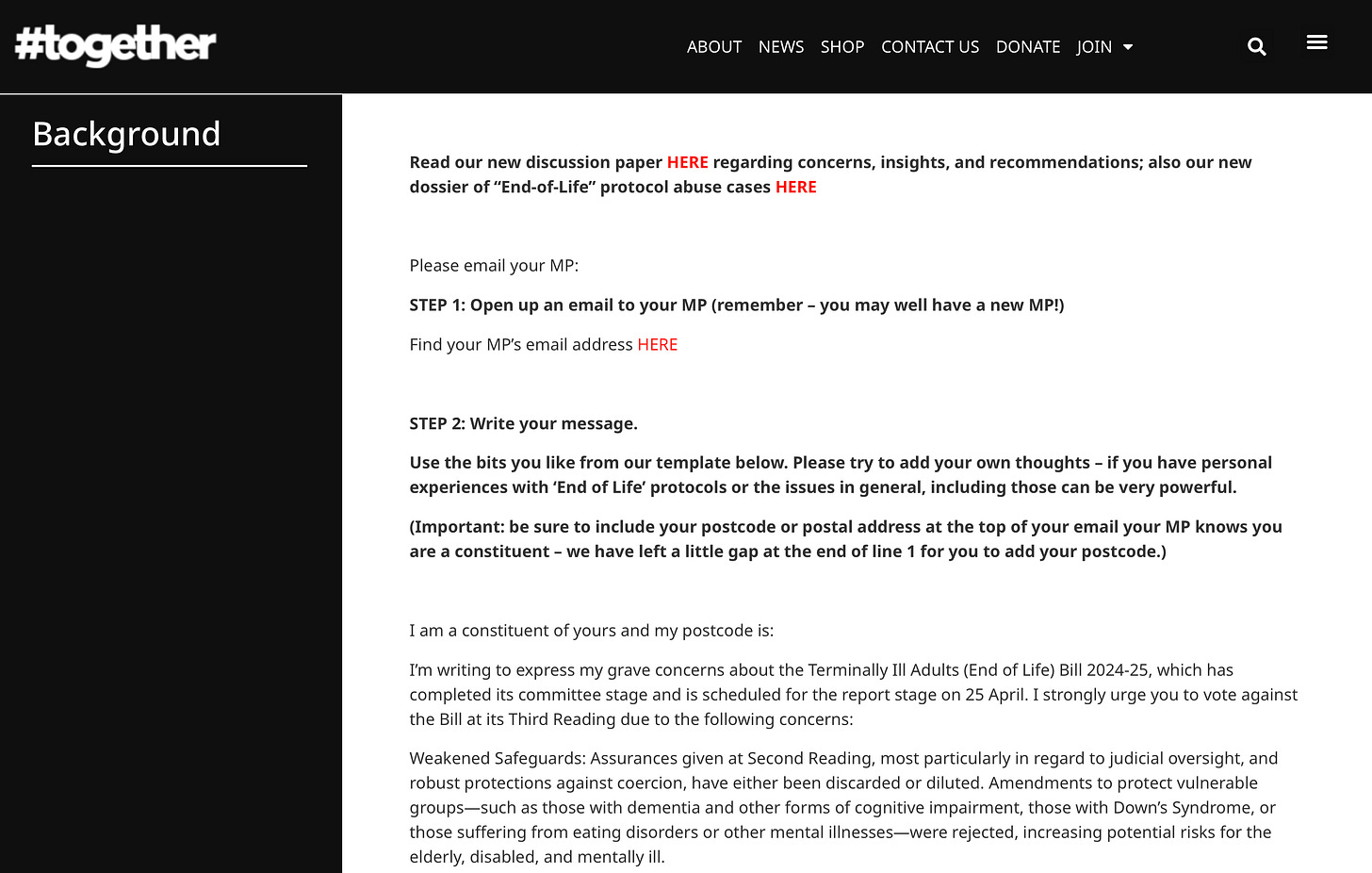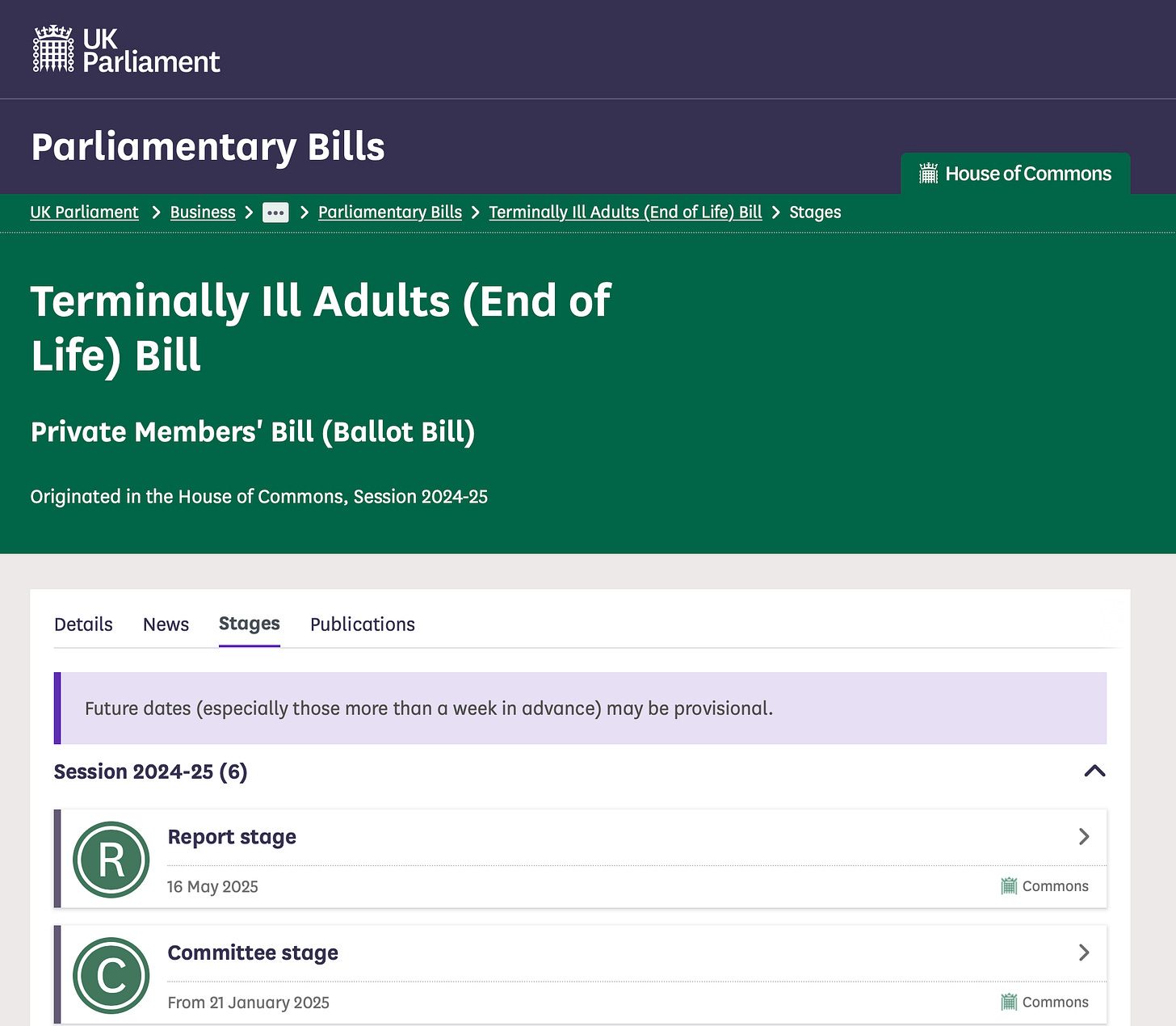Assisted suicide update
The committee stage; the redefinition of the National Health Service; a new clause and a Henry VIII power; a useful resource; the report stage
Dear Church Leaders (and everyone else)
Further to this post…
…and the update in March…
The committee stage
This series of posts from Dan Hitchens provides a useful summary of the committee stage (click on the images to see the footage):
I sometimes wonder what is actually going through Kim Leadbeater’s head.
The redefinition of the National Health Service
This article, also from Dan Hitchens, is worth a read:
It begins…
What do opponents of assisted suicide fear? It isn’t just that thousands of people will request lethal drugs because they feel like a burden, because their care is too expensive, because they are depressed, because they were let down by the system. It isn’t just the deaths from coercion, manipulation and malpractice. There is something else as well, harder to describe but nevertheless important.
Last week, the MPs examining Britain’s assisted suicide bill voted through a very remarkable subclause. A single sentence, tabled by the bill’s chief architect Kim Leadbeater, quietly altered the definition of the National Health Service. The NHS’s original legislation in 1946 laid down that it must “secure improvement in the physical and mental health of the people of England… and the prevention, diagnosis and treatment of illness.” None of which really includes assisted suicide. If Leadbeater’s bill manages to pass its future votes in the Commons and Lords, this might have opened the government to a legal challenge.
Hence the subclause, which allows the Health Secretary to declare that “commissioned VAD [voluntary assisted dying] services” are in fact part of the NHS’s legislative charter. The subclause doesn’t explain why: It just ensures that the government can say so. Which, as the Tory MP Danny Kruger observed, effectively admits that the National Health Service would turn into a different kind of institution. It would, through this tweak to its founding legislation, become the National Health and Assisted Suicide Service. But the alarm was loudest on the other side of the Commons. Labour MPs tend to regard the NHS as their party’s definitive achievement, the greatest edifice of the postwar welfare state built by Clement Attlee’s government. After the subclause went through, six Labour MPs signed a letter calling the bill “irredeemably flawed and not fit to become law,” noting—among a dozen other issues—that it makes “a change to the founding language and purpose of our NHS.”
And ends:
…it is hard not to see a connection between the assisted suicide bill and the national condition in 2025: our crumbling public services, bewildered government, and extractive rentier economy. Hospices are struggling to stay open. The care sector survives on superhuman self-sacrifice and poverty wages (“a miracle sitting on top of a disgrace,” as one care manager has said.) Working-age parents are squeezed for every last penny and every last minute. There isn’t enough to go around—not enough cash, not enough time, not enough attention. And every one of those problems makes itself felt in the NHS, where waiting lists have hit record highs, 30 per cent of staff feel burnt out, and hospitals are so swamped that one hospital recently advertised for a “corridor care” doctor. Health and social care is perhaps the defining challenge for the current generation of politicians, and officially they all want to solve it. But wouldn’t it be easier, a voice seems to whisper, to just give up?
A new clause and a Henry VIII power
In this article, Kevin Yuill, Emeritus Professor of History at the University of Sunderland and CEO of Humanists Against Assisted Suicide and Euthanasia, writes:
Here are MP Danny Kruger’s comments on the new clause 36 as recorded in Hansard:
…the new clause is also designed not only to alter fundamentally the national health service, but to enable the private sector to be paid from NHS funds to end the lives of terminally ill people—and not only that, but to do so with a Henry VIII power so broad as to enable any changes in the NHS or any law to facilitate that goal.
A useful resource
For anyone in the UK wanting to write to their MP, this page on the #Together website is a useful resource:
The report stage
The report stage was scheduled for 25th April, but this has now been put back to 16th May:
Related:
Dear Church Leaders most-read articles
Some posts, including a version of this one, can also be found on Unexpected Turns
The Big Reveal: Christianity carefully considered as the solution to a problem









